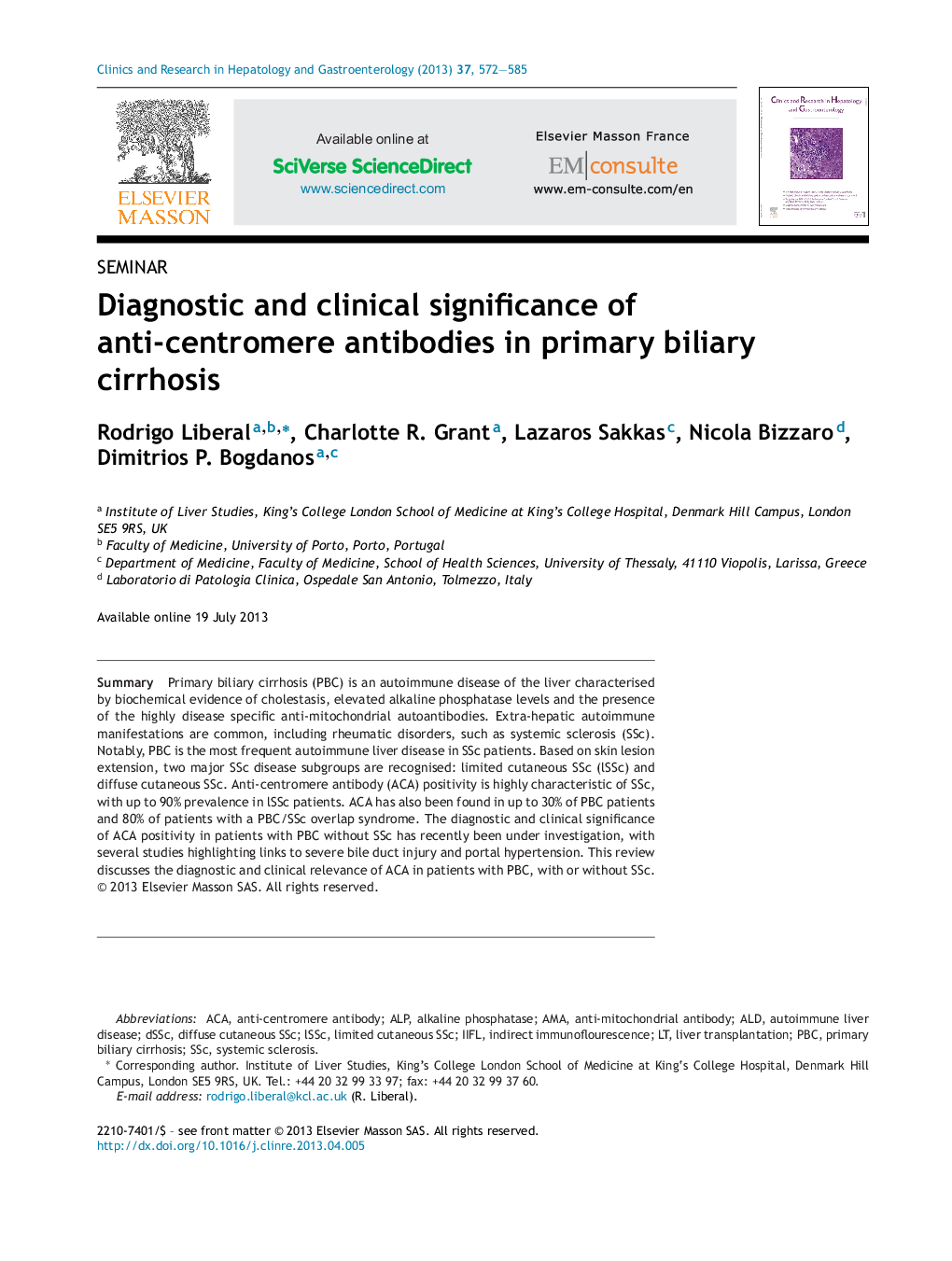| Article ID | Journal | Published Year | Pages | File Type |
|---|---|---|---|---|
| 3286480 | Clinics and Research in Hepatology and Gastroenterology | 2013 | 14 Pages |
SummaryPrimary biliary cirrhosis (PBC) is an autoimmune disease of the liver characterised by biochemical evidence of cholestasis, elevated alkaline phosphatase levels and the presence of the highly disease specific anti-mitochondrial autoantibodies. Extra-hepatic autoimmune manifestations are common, including rheumatic disorders, such as systemic sclerosis (SSc). Notably, PBC is the most frequent autoimmune liver disease in SSc patients. Based on skin lesion extension, two major SSc disease subgroups are recognised: limited cutaneous SSc (lSSc) and diffuse cutaneous SSc. Anti-centromere antibody (ACA) positivity is highly characteristic of SSc, with up to 90% prevalence in lSSc patients. ACA has also been found in up to 30% of PBC patients and 80% of patients with a PBC/SSc overlap syndrome. The diagnostic and clinical significance of ACA positivity in patients with PBC without SSc has recently been under investigation, with several studies highlighting links to severe bile duct injury and portal hypertension. This review discusses the diagnostic and clinical relevance of ACA in patients with PBC, with or without SSc.
